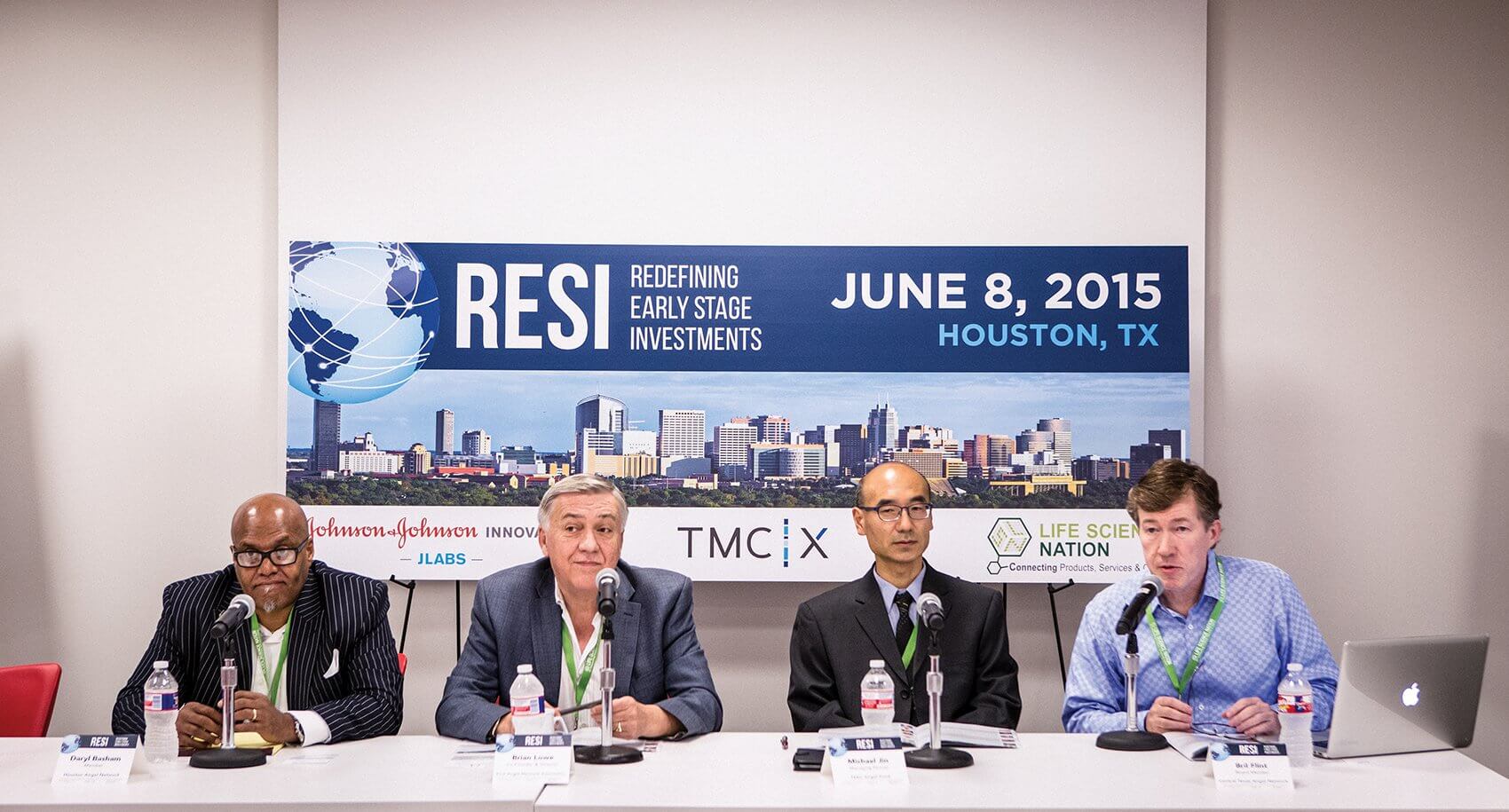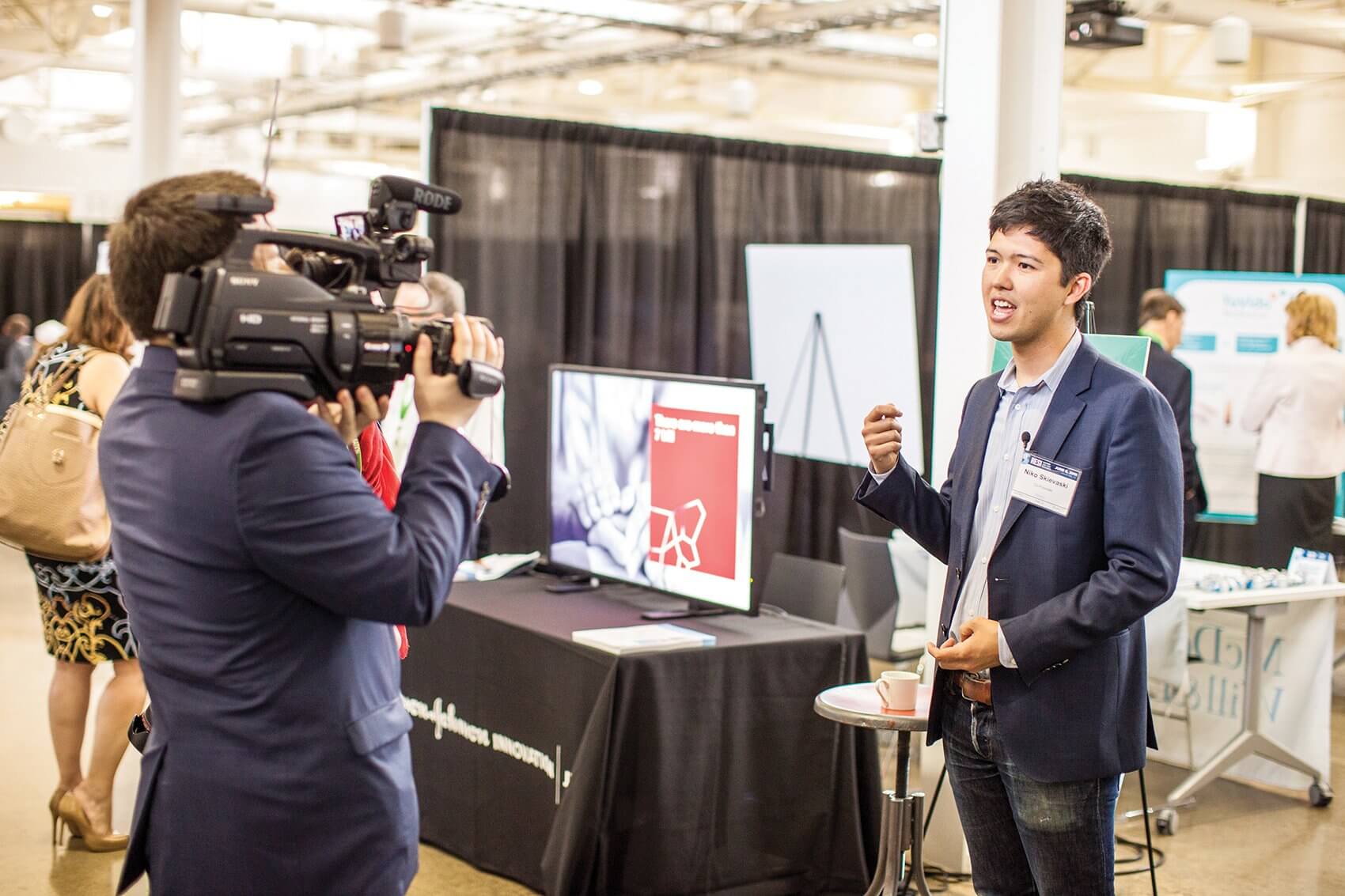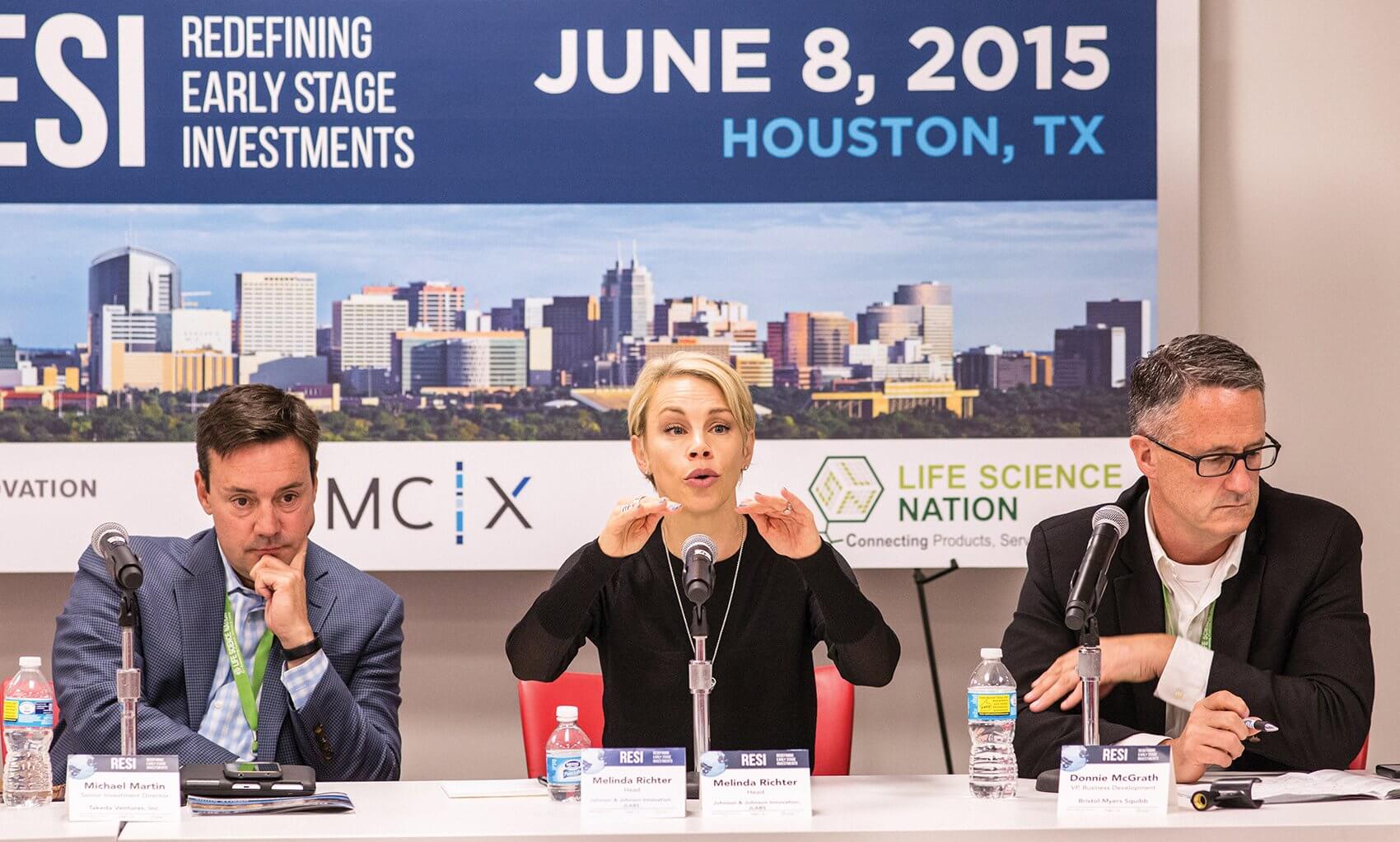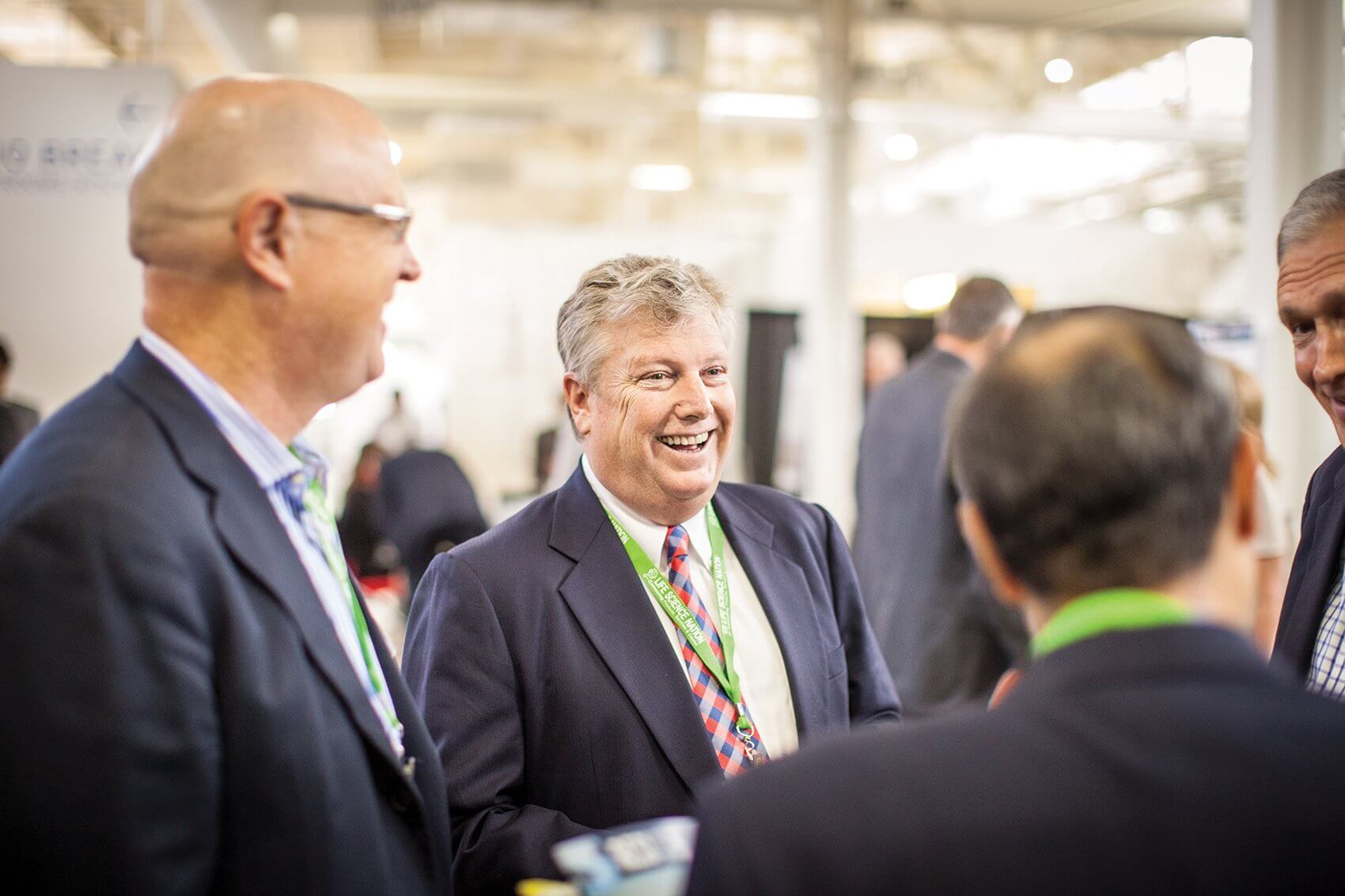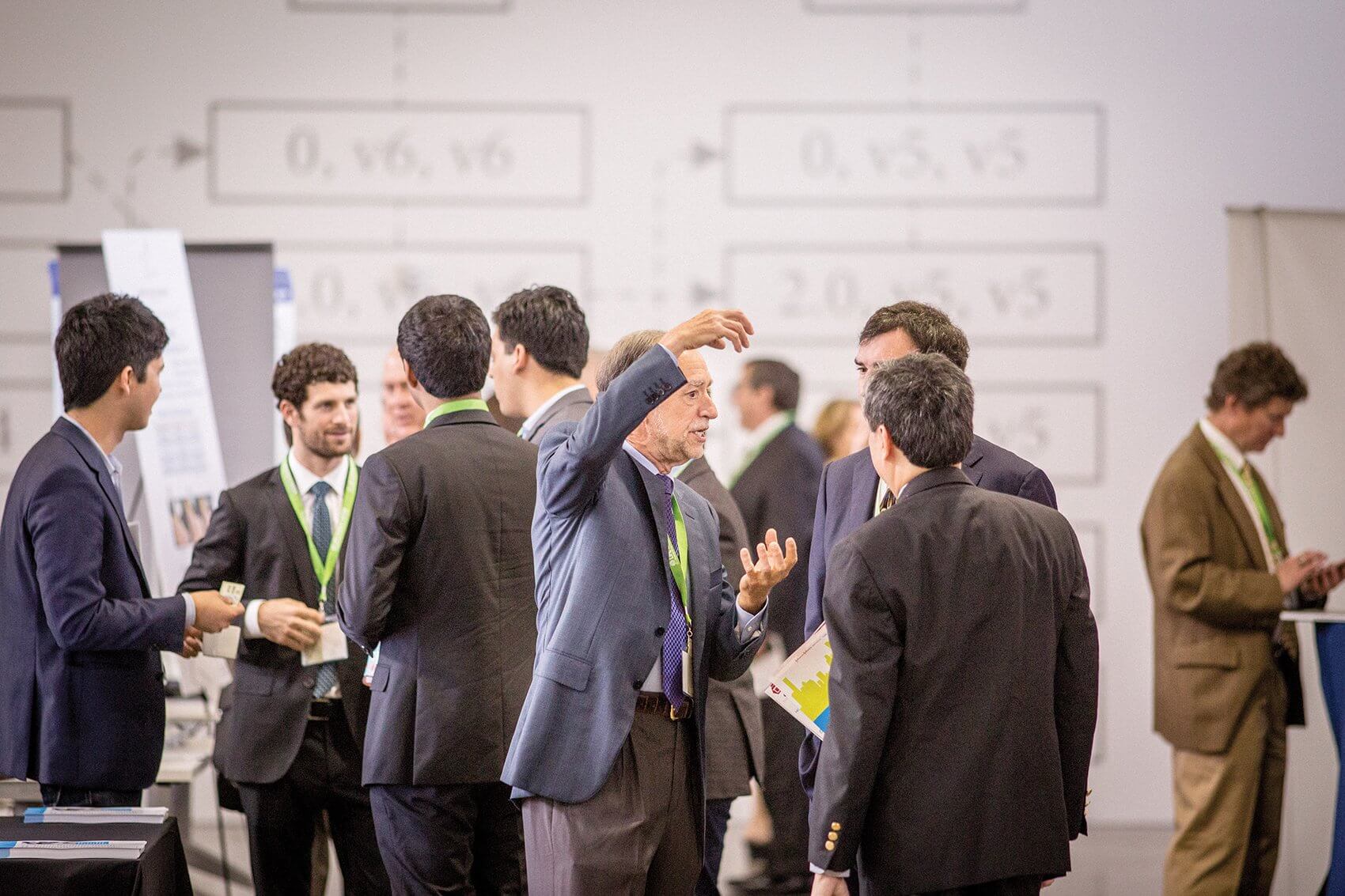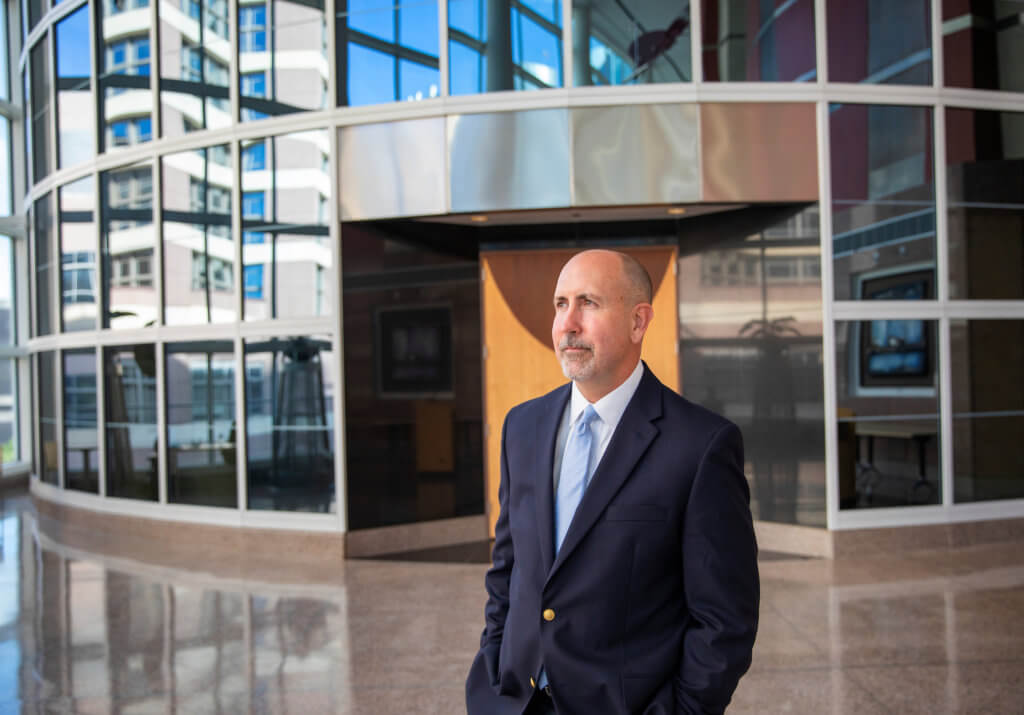Investing in Innovation
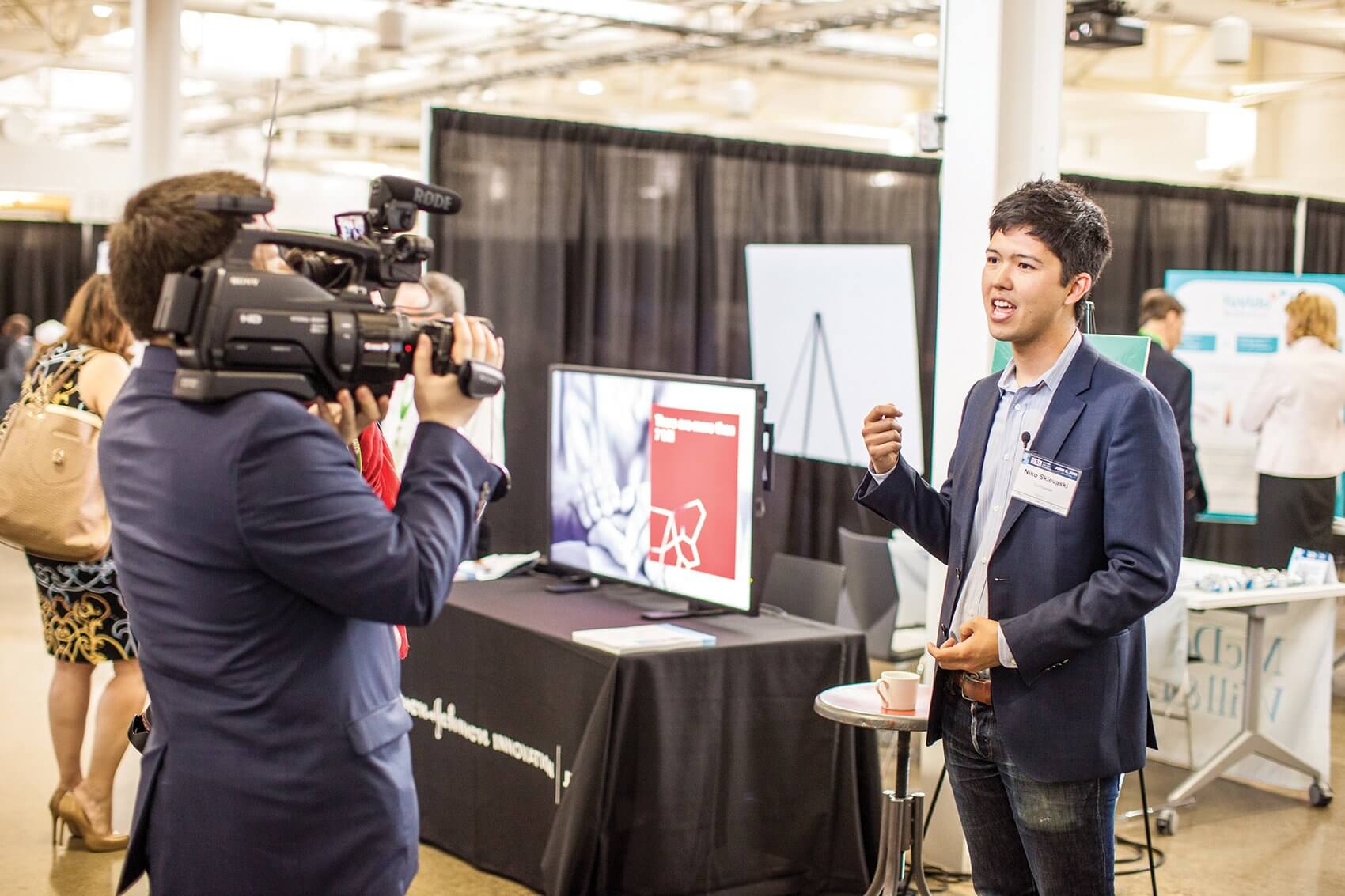
On June 8, the TMCx was abuzz with the collective excitement of over 450 visitors. The Redefining Early Stage Investments (RESI) conference transformed the accelerator space into a venue for early-stage investors and life science entrepreneurs to open dialogue, build relationships, and close investment rounds. In the exhibit hall, poster presentations offered a glimpse of the emerging life science companies in attendance. Nearby, a partnering forum between investors and entrepreneurs compressed 700 meetings into the course of a single day. Panels and workshops took place in conference rooms across the space and provided platforms for investors to communicate directly to their eager audience of fundraising entrepreneurs.
“It can be overwhelming, and we absolutely love that aspect,” said Dennis Ford, founder and chief executive officer of Life Science Nation. “We want to give everyone who comes here more opportunities than they can make a decision about, because if we’re doing that, we’re doing our job. We really want to inundate everyone, for one day, and submerge them in this early-stage investor world to let them get a lot of bang for their buck instead of stretching it out over a period of several days. We want to give them as much value as possible.”
“The day had a frenetic pace to it, but it ran with a great cadence,” said William F. McKeon, executive vice president and chief operating officer of the Texas Medical Center. “It was so efficient. People knew exactly where they were going with the panel discussions, but the lion’s share of the engagement was the matchmaking between investors and entrepreneurs—it was all about prescreened compelling connections for startups and investors, and that pace ran at a vigorous level throughout the whole day. People were exhausted by the end of it.”
Through a partnership between Life Science Nation, Texas Medical Center, Johnson & Johnson Innovation and JLABS (JLABS @TMC), the event introduced fundraising CEOs to the right early-stage investors to meet their needs.
“Before RESI, I don’t think anyone really figured out how to do justice to the concept of an investor conference,” remarked Ford. “It was always an afterthought in these other conferences. Nobody really dedicated a conference to putting fundraising CEOs and early-stage investors together across all these areas, from biotech and medtech to health care IT and diagnostics. As it turns out, RESI was precisely what was needed.”
Together with RESI’s two existing venues—RESI Boston and RESI San Francisco—the conference series takes place three times a year. “This is our fifth RESI event since our first conference in 2013,” explained Ford. “When we would go to these conferences around the world, there were hardly any investors that would show up. Most of the time it was the same old talking heads from pharmaceutical companies, but they were more business development and license oriented—not early-stage corporate venture investors with seed and development capital.”
According to Ford, pooling together Life Science Nation’s global investor database—which allows fundraising executives to match up with investors that are a fit for their particular stage, sector or disease area—allowed them to develop relationships with a broad range of investors across the emerging health care technology arena. They leveraged those connections to bring their fourth RESI conference to fruition in San Francisco at the annual JP Morgan event.
“Fostering change is all about calculated risk taking, and with many naysayers advising that Houston wasn’t ready for a prime time global investor conference, this year’s RESI conference knocked it out of the park.” — Dennis Ford, Founder and Chief Executive Officer of Life Science Nation
“I think Houston will end up on par with Boston and San Francisco,” said Ford of the event’s most recent venue. “Life Science Nation and the Texas Medical Center share the same vision. Everybody was telling both of us that we would never get anybody to Houston in June, and that if we did get people, it would be a very small event. It ended up being one of the most highly active, high-energy RESIs that we’ve ever had.”
Through an expansive series of panels—covering topics from biotech angels to venture philanthropy—the event offered firsthand accounts from investors explaining their current investment mandates and procedures for identifying and qualifying candidates “People always say, ‘If you build it, they will come,’ but to do a successful conference, content is king,” said Ford. “When we developed the content of RESI, we decided on 16 panels—from a family office panel that invests in biotech and medtech to big pharmaceutical companies and every investor category in between. Because we have an investor database that we maintain, we are involved in a constant dialogue with the early-stage investor community around the globe. We know all of the issues that they have and the fact that they’re all different.”
“There are 10 categories of early-stage investors and they all have their own personality types,” he added, emphasizing the need for entrepreneurs to cater their content to their audience. “With the investors at RESI, we have separate panels for each category, providing them a platform to explain to scientific entrepreneurs the best way to reach them, what they’re looking for, and what’s on their radar screen. That creates the foundation for this dialogue that you really don’t see anywhere else.”
Participants chose investor panels that were a fit for their sector and stage, and the rooms were virtually standing-room only. However, the majority of the action took place at the partnering forum, where fundraising executives held up to 16 meetings in a single day with life science investors, understanding and mapping out the best ways to work together if, indeed, there was a fit.
“The partnering is the core of the RESI conference,” said Ford. “It was like a beehive of activity—when you walked in you could just feel the energy rising off the ground. That’s always been one of the big winners at our conference, because the people can actually go through the matchmaking platform, find people that are a perfect match for them, and go on to have a conversation.
“When you go to other partnering events at other conferences, you’re usually in a sterile environment and they don’t work that well,” he added.
“I don’t want to directly compare what we do to speed dating, but you get a round table with a number on it and a half-hour to pitch to one of the participants. Everyone is incredibly receptive to the concept and it is a very sophisticated match making process.” Between 8 a.m. and 5 p.m., at least 700 meetings took place.
Meanwhile, in the exhibit hall, 34 of the most innovative early-stage life science companies at the event were chosen to participate in a virtual investment contest—the RESI Innovation Challenge. Competing to raise the most “RESI Cash,” cutting-edge life science technologies battled it out through poster presentations showcasing their solutions. Redox, a TMCx company seeking to integrate electronic medical records systems, took home the first prize and a subscription to the Life Science Nation Investor Platform.
For the entrepreneurs present, the day instilled some serious lessons about strengths to promote and pitfalls to avoid when trying to cultivate relationships with investors.
“Too often, many CEOs reach out to investors before they’re ready to,” said McKeon. “They’re largely motivated by their burn rate—when many companies form, they’re putting their own money into it or have some friends or family investing, and it’s usually not that much. Every day that goes by, they’re burning more of that money. There is an element of desperation in that visceral need to get another source of funding, to allow that idea to survive and become a viable company.”
The prospect of limited funds slowly ticking away can incentivize anyone to decisive action, but McKeon cautions a more thoughtful, deliberate course.
“My advice is always, ‘Make sure you’ve got a demonstrable product or service with hard, proven data to back it up,’” he said. “Too often, people come with the core concept itself, but don’t have the development plans and data to back it up. When investors reach into their pocket to spend money, they don’t want to know what could be—they want to know what is. If you don’t have that data, then you shouldn’t be out talking with investors.”
With entrepreneurship workshops providing some tips for navigating the legal marketplace, branding and even a fundraising boot camp, the RESI conference strives to provide a continuum of support, connections and education.
“There are a number of conferences that are aimed at investors, but there’s something special about RESI,” said Melinda Richter, head of JLABS. “Because they are an entrepreneurial organization themselves, they are passionate and committed to their purpose. All of the attendees feel that, whether they’re an entrepreneur just starting out or a strategic investor seeking the right technology. It brings together the right people, for the right purpose.”
“There’s nobody really doing what we’re doing,” added Ford. “Life Science Nation, the Texas Medical Center and JLABS all have the vision to bring investors to Houston and highlight the technology. Fostering change is all about calculated risk taking, and with many naysayers advising that Houston wasn’t ready for a prime time global investor conference, this year’s RESI conference knocked it out of the park.”

